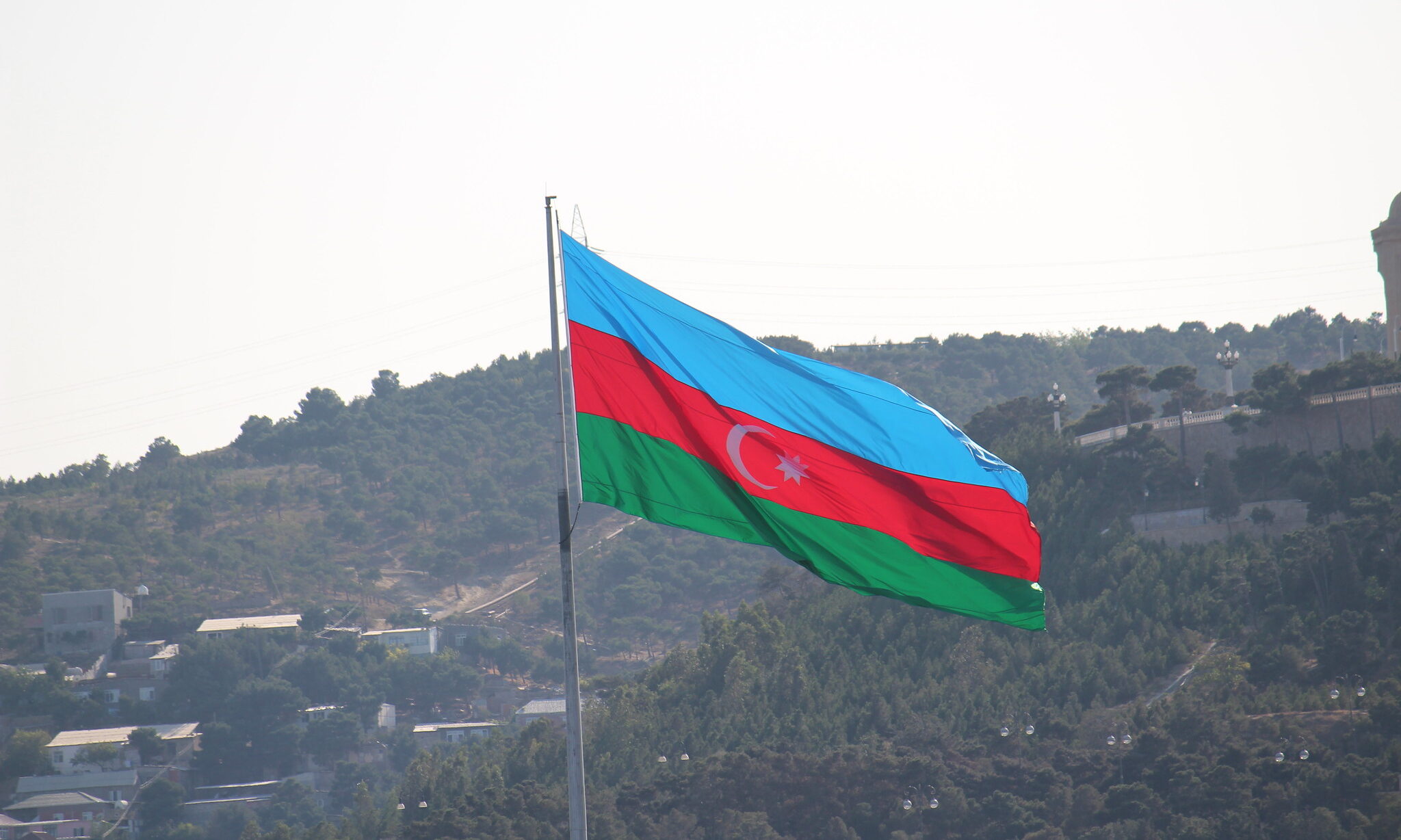The Azerbaijan-China Strategic Partnership: Opportunities and Challenges for the EU

The relationship between Azerbaijan and China has evolved significantly over the past decade. This is evident in public statements by their respective heads of state, which frequently highlight the growing friendship and expanding trade between the two countries. The culmination came in July 2024, when the two countries signed a joint declaration on strategic partnership, underscoring their commitment to both political and economic cooperation.
This article is part of a series of articles authored by young, aspiring China scholars under the Future CHOICE initiative.
Given Azerbaijan’s increasingly important role in European energy supplies, it is crucial for the EU to understand the underlying motivations behind the Sino-Azerbaijani partnership. For China, Azerbaijan is a key player in its Belt and Road (BRI) Initiative, especially when it comes to securing its trade routes. Azerbaijan, on the other hand, views China as a means to diversify its oil-dependent economy.
Azerbaijan’s Economic Challenges
Since gaining independence from the Soviet Union, Azerbaijan has allowed international oil companies to develop its Caspian Sea oil fields. The surge in oil prices during the 2000s significantly boosted the country’s GDP, transforming Azerbaijan into a petrostate. Today, 91% of its exports consists of fossil fuels that are sold predominantly to Europe and Turkey.
However, such heavy reliance on oil revenue has hindered broader economic development, with the oil industry crowding out other sectors of the economy. The education sector remains underdeveloped, and the strong currency makes non-oil exports unprofitable. Such dependency also exposes Azerbaijan to global market fluctuations. For instance, a drop in oil prices in 2014 led to a recession, a nearly 50 percent devaluation of the national currency against the US dollar and rising food prices that ignited anti-government protests.
The BRI and the Middle Corridor
It was during this period of economic slump that Azerbaijan joined the Belt and Road Initiative (BRI) with the aim of diversifying its economy through enhanced connectivity. Baku hoped this would mitigate the disadvantages of being a landlocked country and reduce transportation costs. Moreover, unlike many other countries in the BRI, Azerbaijan has largely avoided debt-trap concerns by financing most of its infrastructure projects independently – that is, without relying on Chinese loans. For instance, the Baku–Tbilisi–Kars railway was primarily funded by the relevant regional countries.
For China, Azerbaijan is a crucial node in the BRI due to its strategic location on the Middle Corridor – a transport route connecting China and Europe via the Caspian Sea. Although all countries bordering the Caspian Sea are investing heavily in their port capacities, the port of Baku stands out for its central location and substantial processing capabilities. Moreover, the Middle Corridor’s transport volume has increased significantly in recent years, partly due to reduced appeal of transportation through Russia following Western sanctions. Despite having a lower total capacity than the Russian route, the countries along the Middle Corridor are collaborating to expand the corridor’s capacity. Azerbaijan, for example, has established a joint logistics company with Kazakhstan and Georgia in order to standardize tariffs and regulations along the route. Consequently, a significant portion of the recently signed joint declaration is dedicated to the BRI.
Chinese Investments: From Old Tech to Green Tech
Besides collaboration on international trade corridors, the joint declaration also highlights the two countries’ support for the multilateral trading system. While this aligns well with China’s interests – having benefitted significantly from its WTO membership – it seems rather surprising in case of Azerbaijan, which had shown no intention of joining the WTO as recently as 2019, and which had previously been largely protectionist in sectors other than oil.
The declaration also emphasizes industrialization and investment, reflecting Azerbaijan’s hope that engagement with China will facilitate the transfer of technological know-how. Azerbaijani officials are actively promoting their country as a destination for Chinese high-tech investment. The government has even started promoting the creation of industrial parks and free economic zones that offer tax incentives and other financial support for start-ups. This shift away from a previously protectionist stance has already seen some success. Whereas initial Chinese investments in tire factories and steel mills had a modest technological impact, recent investments include Huawei’s 5G infrastructure projects and collaborations between Chinese satellite company Emposat and Azerbaijan’s space program.
Azerbaijan is also interested in Chinese green tech investments, with the joint declaration further highlighting cooperation in industries like photovoltaics and electric vehicles, in which China is a market leader. Chinese energy companies are already involved in renewable energy projects, including plans to power Nagorno-Karabakh with solar energy, whereas BYD has announced plans to build a factory producing electric buses for Baku’s public transport system. With Azerbaijan set to host the COP29 in autumn 2024, its increased focus on green technology may well be driven by a desire to enhance its international image. Nevertheless, the primary goal remains the same – that is the diversification of its economy through Chinese investments.
Opportunities for EU-Azerbaijan Engagement
The Azerbaijan-China partnership presents both opportunities and risks for the EU. On one hand, the EU benefits from improved infrastructure along the Middle Corridor. As it helps to reduce its reliance on Russia, the EU has invested billions into this route, thus aligning its interests – at least to some extent – with those of China and Azerbaijan.
On the other hand, the EU is increasing its exposure to risks. While geopolitical tensions and global trade disruptions have led the EU to reassess its economic dependence on China, Azerbaijan does not share the same concerns. Indeed, Azerbaijani analysts who urge caution regarding the country’s dependence on China are few and far between. Therefore, as the EU is increasing its reliance on gas and oil exports from Azerbaijan, it is potentially opening itself to Chinese influence in Baku, which could compromise its energy security.
This risk can, however, be managed. Azerbaijan’s share of EU gas and oil imports is relatively small, which reduces a potential for economic coercion. Moreover, the strategic partnership does not necessarily mean that Azerbaijan will fall within Beijing’s sphere of influence. After all, strategic partnerships are common in Chinese foreign policy, including with EU member states, which leaves Azerbaijan’s corruption and human rights abuses as the most salient concerns for the EU.
Furthermore, Baku’s efforts at economic diversification remain speculative – they have been on the government’s agenda for over a decade and have not been successful. The same can be said about the ability of Azerbaijan’s new business environment to attract foreign investment. Nevertheless, Azerbaijan’s visible efforts at diversifying its economy indicate that there is room for maneuver. The EU could support these efforts by offering new avenues for the country’s economic diversification, thus providing alternatives to China.
Written by
Konstantin Kladensky
Konstantin Kladensky is an independent researcher focusing on Chinese economic and foreign policy. He holds a master's degree in Chinese studies and has contributed to research on the social credit system at the University of Vienna.


